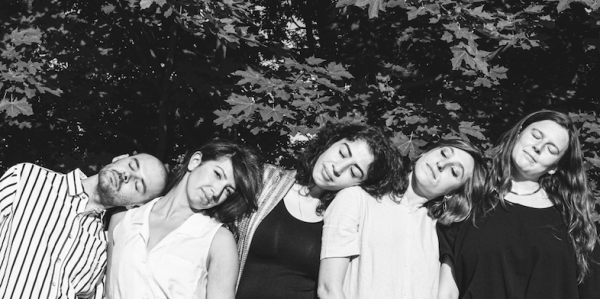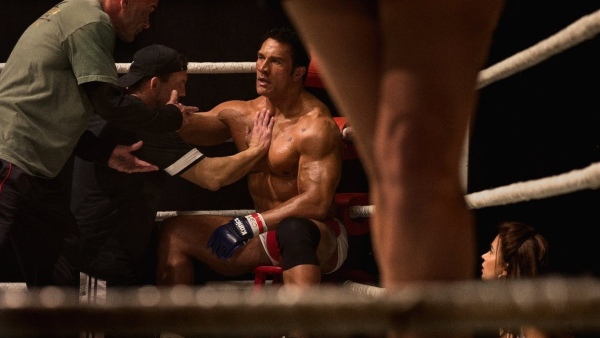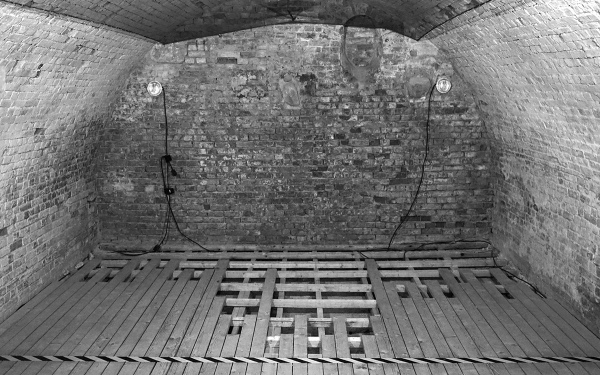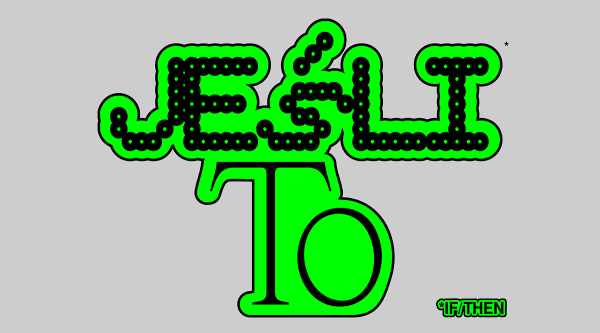talk
Challenging the frozen vision
Paulina Jeziorek talks with Jose Eduardo Yaque Llorente
- Looking at that brush covered with sprouting plants, my first thought was of the ending of Michel Houellebecq’s The Map And The Territory, the moment when the brief manufacturing era in the history of humanity sinks into oblivion under the pressure of nature. But then I realised I was imagining what could happen, not what I actually saw. Looking at your work from the Alive Works series, plants growing on brushes and other objects, I can see that the organic and inorganic matters interweave with each other, but neither of them prevails...
- Yes, it is so. With this particular work, which came out first, it was not so that I had been dreaming, thinking or writing about it... I did not devise it myself that I would take a brush, plant some seeds on it, and it would tell about nature and creation. That brush was at my workplace. I once happened to see a sprouting seed on it. I liked it. It reminded me of the idea of eternal germination and then I decided to show it. This work was ready-made, I did not have to do anything. And this idea is very important.
- To find such sprouts in reality and let them grow, rather than to invent this reality, create it from scratch?
- Yes. This is the idea of the work. Perhaps someone will say: anyone could notice something like this. It is true. Anyone could see it. I do not care whether I am the creator. The act of creation occurs, but always in relation to all things around. At the same time, when I found this object, I was working on another installation, it was large, required strength... And here comes a piece of work which does not require me to do anything. Later, however, I made a number of similar works. Then I deliberately continued that thought. And four more works with seeds were made, different each time.
- So, actually, one could say that you transform one object into another?
- Yes. I do not use the term “material”. I call each type of material an object, because it has a function, it is present in reality. Many a time I feel that the given object is willing to transform itself, and I just help it to complete this process. It is difficult to say whether this form is in me, or in the object. I do not like to create any hierarchy between the object and the creator. Rather, I am talking about something like the relationship between the object and man. Many people think that the object is man-made, but do not realise that man is the product of the object. Now we are talking about the object as a thing, which does not speak. When I work with an object, I do not talk about it, but work with it and see its intentions. Its use or exploitation without thinking about it is instrumental. Things are treated as materials, and not as something that has its own life. Even if it is a stone - it has a meaning, its own life, internal discourse... I do not walk up to the stone and say to it: “You have to say this or that.” I listen. Let’s talk first. At best, I can translate something for it (laugh). I can tell it things the stone does not want to hear. It is about a searching vision that helps you enter the true reality, go beyond the world that only appears to be true.
- But it is immobilised, frozen, because then it is easier to name or understand it?
- Everything changes. I do not like to say that. My works say that. I mean they want to say that, but I do not know if they do. That everything changes, that it takes to challenge the frozen vision. In many of my works I try to do it. Which is why many of them are ephemeral in form. In Spanish eternal sprout is a pun (eterno retorno / retono - eternal return / sprout). The idea of eternal return. This is a very important concept for Nietzsche, who made his own the idea of return as formulated by the Greek philosopher Heraclitus.
- You mean the idea of reality as a repetitive cyclic process, rather than continuous progress?
- Yes, more specifically the incessantly recurring spiral movements. People do not want to accept that everything comes back, but in a different form.
- It cannot pass unnoticed that your approach has to do with, e.g. the Shinto religion of Japan. Every object or kind of animate or inanimate matter has both spiritual and material qualities.
- I am a Westerner. I think the Western way. But I have read a lot about the philosophy of the East. Not only about art, but the way of life, as well. There are many things that interest me. I observe the relationship between what is Western and Eastern. But my discourse is not Orientalist, though I can see this relationship and cannot deny it. Today it is highly fashionable, which is why I do not like to talk about it, because it is not that simple. All things affect each other. As is the case with this interview. I have said some things, and you have heard them. I am curious to know what you have heard. I may not agree with you, or I may admit that you are right. For me it is important to hear what others say. Perhaps even fundamental.
- One of the works titled Cavity, part of a series of giant installations put together from abandoned objects, was constructed in a church. The church aisle filled with objects nearly up to the ceiling looks impressive. How did it happen that this installation was constructed nowhere else but in a church?
- This space belonged to the church, but it was not being used because of its poor condition. Together with my friends we started to work there, practically I lived there. Where did all these things, from which this work was constructed, come from? I found them in the church. The day before they were to be removed I had asked to keep them. I saw the similarity of the church arch to the abdominal cavity, a sort of intestine formed in the nave. This work is a product of the fact of being in this space. The space helped to highlight this idea.
- And then what happened with this work?
- It was demolished, just like all the other works.
- And is that okay?
- It is. I have no problem with that.
- Was the action in the church an independent project? Or was it part of an organised artistic event?
- From the practical point of view, all my works are independent - I am in charge of constructing and dismantling the given work.
- How do you cope financially working in Cuba?
- I do not make my work conditional upon funding. When there is work to be done, I give up everything for that work. It is as if you asked what I do to stay alive. I live, because I have to live. I do this job, because I can do nothing else. When talking about my works I never say: this work has cost me this or that much. I do not even say how much time it took me to complete it. I do not think it is important. Some works require a lot of effort, some do not require any effort at all. I do not complicate my life. When I have an idea, I sacrifice everything. But I use the notion of “sacrifice” in a different meaning, not the common dramatic one.
- I do not make my work conditional upon funding. When there is work to be done, I give up everything for that work. It is as if you asked what I do to stay alive. I live, because I have to live. I do this job, because I can do nothing else. When talking about my works I never say: this work has cost me this or that much. I do not even say how much time it took me to complete it. I do not think it is important. Some works require a lot of effort, some do not require any effort at all. I do not complicate my life. When I have an idea, I sacrifice everything. But I use the notion of “sacrifice” in a different meaning, not the common dramatic one.
- So you do not mean sacrifice as an offering?
- On the contrary. When I finish a work, I feel very well. Even physically. My works are created with the help of many acquainted artists. We try to work together. We do workshops, debates, and events.
- Do you already have the idea of the project you will construct in Warsaw during your residency at Ujazdowski Castle Centre for Contemporary Art?
- Yes, but there is no knowing whether it will be possible to construct. I have learned that my original proposal is complex and permits are required to build it outside, there is little time...
- So you will need to change the concept?
- The moment of creation is something that happens spontaneously. Sometimes it is difficult to change the concept. The work delivered in a particular place is a bit like a gift. Exchange is easy in business. It is difficult to exchange a gift. I am watching and talking with the space. We will see.





